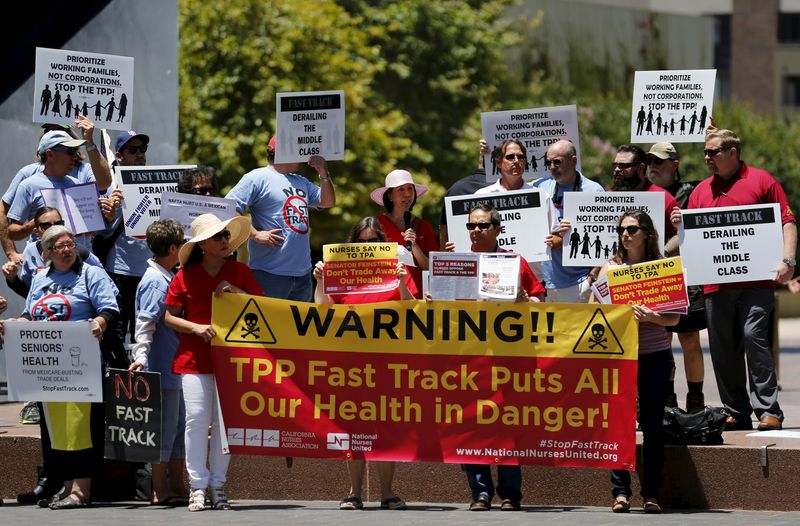By Krista Hughes and Richard Cowan
WASHINGTON (Reuters) - U.S. President Barack Obama's signature Pacific trade pact faces another test in the Senate on Tuesday as legislation needed to close the deal returns for a second run through the chamber.
The legislation has already endured six weeks of congressional wrangling and two close brushes with failure after revolts by Obama's own Democrats, many of whom believe trade deals will threaten U.S. jobs.
The bill, which would establish a fast track through Congress for trade deals, needs support from 60 senators to clear a procedural hurdle. Although the measure passed the Senate a month ago on a vote of 62-37, including backing from 14 Democrats, some may withdraw support.
Fast-track legislation gives lawmakers the right to set negotiating objectives for trade deals such as the 12-nation Trans-Pacific Partnership, or TPP, but restricts them to a yes-or-no vote on the final agreement.
Trading partners say they want fast-track legislation enacted before finalizing the TPP, which would be the biggest trade deal since the North American Free Trade Agreement liberalized commerce between the United States, Canada and Mexico two decades ago.
It took two attempts to pass this same procedural hurdle on the legislation's first run through
Opposition in the House of Representatives, where Democrats refused to renew a previously uncontroversial program providing aid to workers hurt by trade, has forced the measures apart again.
Senators will vote Tuesday on limiting debate on fast-track and - if that vote succeeds - on the actual bill on Wednesday, before tackling a second bill extending trade benefits to African nations. That bill now also contains the worker aid program.
Republicans want both measures to pass this week before Congress goes on a week-long break so that Obama can promptly sign them into law.
"If we simply vote the same way we did a couple of weeks ago, we won't miss this opportunity," Senate Majority Leader Mitch McConnell said on Monday.

The TPP, a potential legacy-defining agreement for Obama, would open markets for U.S. exporters like Intel Corp (NASDAQ:INTC) and Caterpillar Inc (NYSE:CAT), extend monopoly periods for Pfizer Inc (NYSE:PFE) and rivals' medicines and cut import costs for companies like Wal-Mart Stores Inc. (NYSE:WMT)